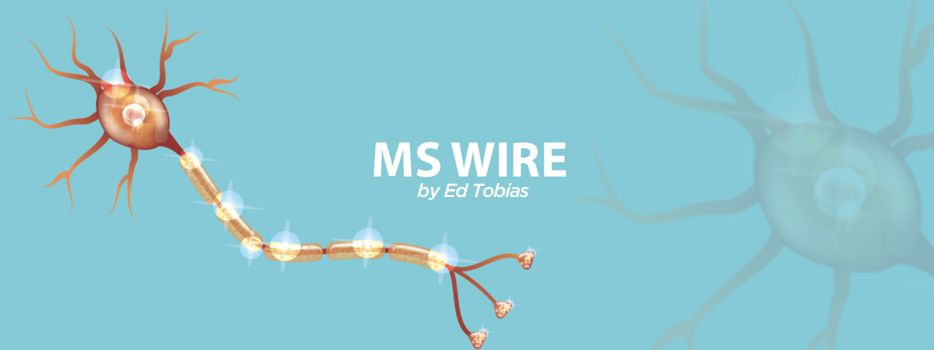MS News That Caught My Eye Last Week: DMTs and COVID-19 Vaccines, Better Trials, Ocrevus, Spinal Lesions

National MS Society Urges DMT Dosing Changes for COVID-19 Vaccinations
The National MS Society has revised its COVID-19 vaccine recommendations first issued about a month ago. The guidelines still say the Moderna and Pfizer vaccines are considered safe for people with MS, including those using disease-modifying therapies, or DMTs. But they list additional treatments that should be discussed with a doctor, regarding the timing of getting a COVID-19 vaccine. Be sure to read the entire article to check recommendations for your DMT.
To potentially increase the effectiveness of COVID-19 vaccines in people with multiple sclerosis (MS), the National Multiple Sclerosis Society is recommending dosing adaptations for some disease-modifying therapies (DMTs).
Based on expert consensus and available data, the guidance is particularly relevant for MS patients considering initiating or already being treated with such DMTs as Lemtrada (alemtuzumab), Mavenclad (cladribine), Ocrevus (ocrelizumab), off-label rituximab, or Kesimpta (ofatumumab).
Click here to read the full story.
***
Progressive MS Alliance Wants Changes to Trials to Better Realize Treatments
A focus on biological mechanisms might be at the top of this alliance’s list of proposed changes to clinical trials, but a goal that’s lower on the list is more important to me. The alliance says researchers should be less restrictive about who is eligible to participate in their trials. I think older people with MS need to be included, yet they rarely are. The alliance also wants researchers to include feedback from people with MS when studies are being designed. This is the goal of a group I participate in called iConquerMS. Check out its website.
Making clinical trials more comparable, consistent, and focused on the biological mechanisms underlying the onset and development of multiple sclerosis (MS) are all key to more quickly realizing new treatments for progressive MS, according to the International Progressive MS Alliance.
To attain these goals, the Alliance, a worldwide collaborative organization committed to the speedy development of new therapies for progressive forms of MS, published a series of recommendations on how early MS trials should be designed and conducted.
Click here to read the full story.
***
Trial to Examine if Ocrevus Eases Cognitive Fatigue in RRMS
It’ll be interesting to see if Ocrevus (ocrelizumab) can help ease cog fog. I believe Lemtrada (alemtuzumab), which is similar to Ocrevus, has helped improve my mental sharpness.
Researchers at the Kessler Foundation, with support from Genentech, are opening a study into how Ocrevus (ocrelizumab) affects cognitive fatigue — the feeling of complete exhaustion after focused concentration — in people with relapsing-remitting multiple sclerosis (RRMS).
Cognitive fatigue is a frequent problem with MS, reported in 70% to 90% of patients, according to the Kessler Foundation. It remains difficult to treat, however. No medications used to slow the progression of physical disability are indicated for cognitive fatigue, and researchers lack effective physiological markers to guide treatment decisions.
Click here to read the full story.
***
New Spinal Cord Lesions Can Be Evident in Stable MS Patients
This study suggests the opposite of what I’ve always believed. I’ve been told that MS symptoms usually occur before spinal lesions can be seen on an MRI. In fact, that’s been the case with my progression: When my walking worsened, spinal damage couldn’t yet be seen on an MRI. My neurologist says that’s often the case.
Asymptomatic damage to spinal nerves occurs even in clinically stable cases of multiple sclerosis (MS) and carries an increased risk for further lesions, a recent study suggests.
Although a firm link between the asymptomatic loss of myelin in the spine and worsening disability remains to be found, this work suggests that monitoring clinically stable MS patients via MRI scans may prove useful.
Click here to read the full story.
***
Note: Multiple Sclerosis News Today is strictly a news and information website about the disease. It does not provide medical advice, diagnosis, or treatment. This content is not intended to be a substitute for professional medical advice, diagnosis, or treatment. Always seek the advice of your physician or other qualified health provider with any questions you may have regarding a medical condition. Never disregard professional medical advice or delay in seeking it because of something you have read on this website. The opinions expressed in this column are not those of Multiple Sclerosis News Today or its parent company, Bionews, and are intended to spark discussion about issues pertaining to multiple sclerosis.







Janette
I try to enjoy all the articles. They are very helpful for me. But contunuous ads cover the articles so I cant read them. Very disappointi ng
Ed Tobias
Janette,
Thanks for your comments. I'm glad you think the info is useful to you and I'll pass your concern about the ads along to the business side of the website.
Ed